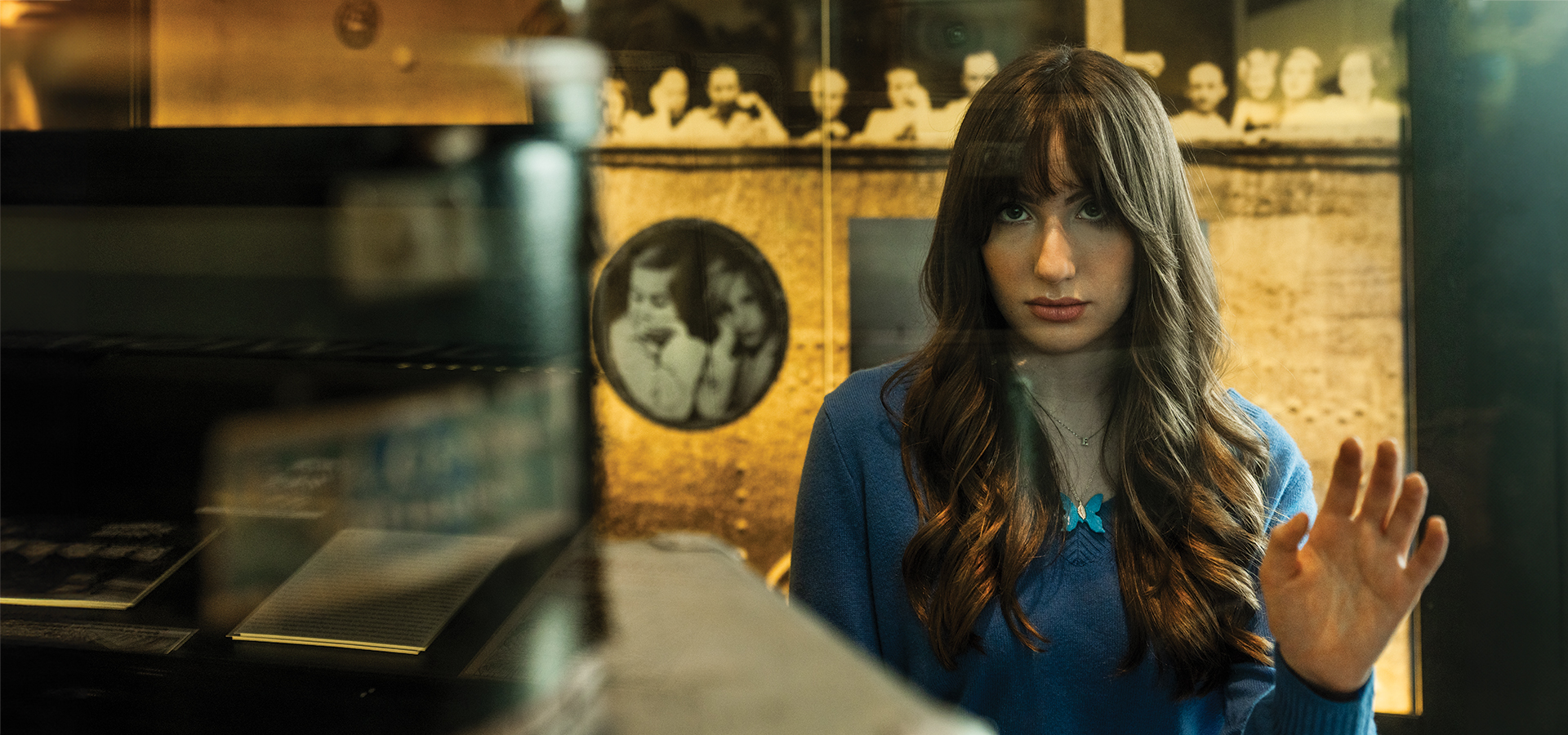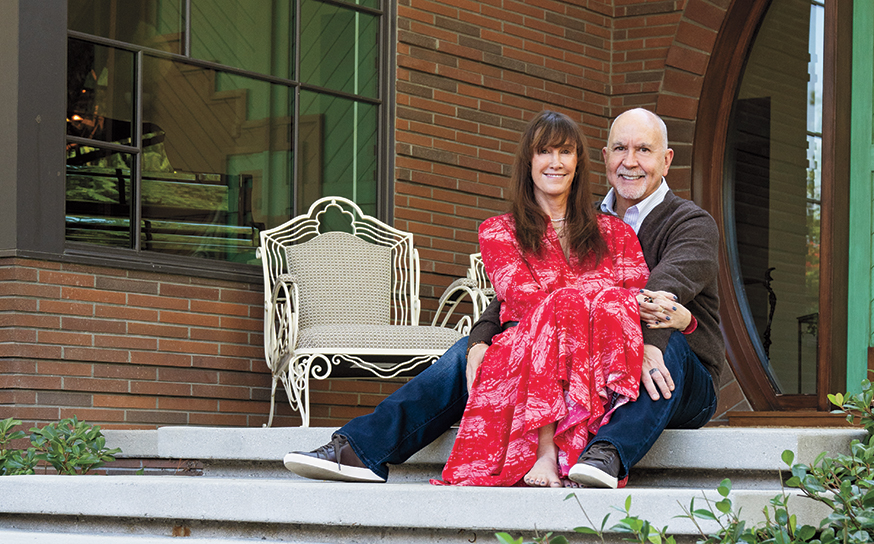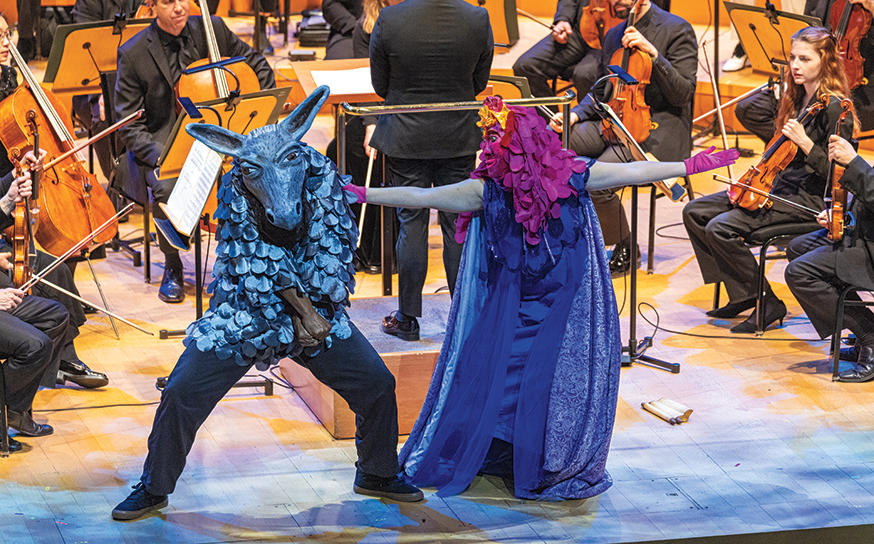It is crystal clear that Emma Blankstein is going places. Excelling as a student at Oakwood School in both academics and extracurricular activities, she was chosen in 2022 as one of Ventura Blvd’s Faces of the Future. The annual article, which features extraordinary Valley students, highlighted a trifecta of advocacy issues she championed: holocaust and genocide education, climate justice and menstrual equity.
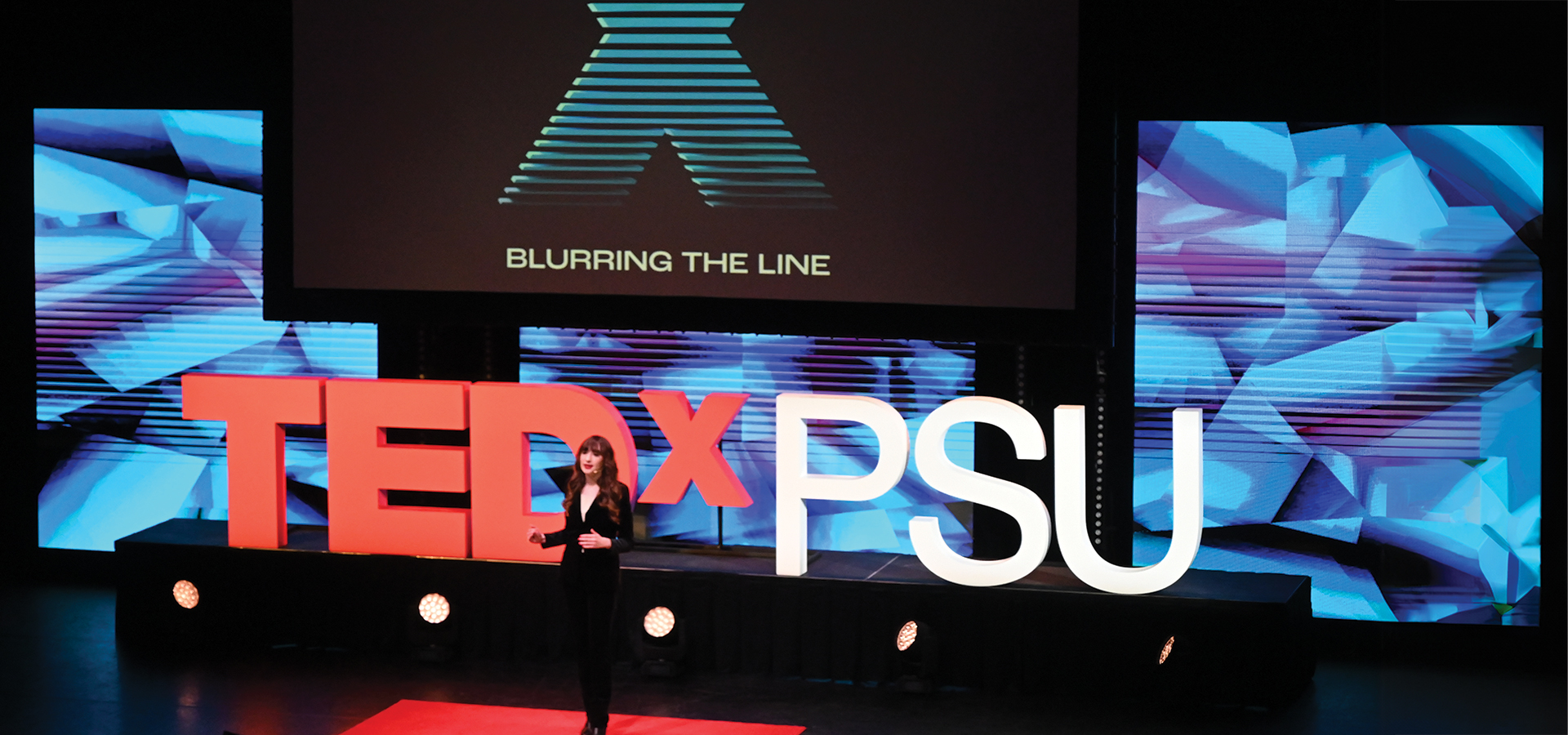
“At that point I was doing all of this activism and social justice work that I was really interested in personally and just following my passion for that. It was cool to realize that other people found interest in that too, and thought that that work was worth paying attention to, which fueled me further.”
Emma, who is now a sophomore at Brown University, says there was never a time during her Jewish upbringing that she didn’t know of the Holocaust. In elementary school she found it strange that many of her fellow classmates were oblivious to it. Her belief that genocide education was important was cemented at 12 years old after she heard Holocaust survivor Dorothy Greenstein speak at her synagogue, Temple Israel of Hollywood, during Yom Hashoah, the international Holocaust Remembrance Day. Dorothy was the daughter of a rabbi and lived near Warsaw. After the war started, she was forced along with her family to live in a ghetto. As conditions worsened, the family was forced to split up, and Dorothy—alone at age 11—fled to the countryside. She survived by begging for food and shelter. Eventually a sympathetic Christian helped Dorothy steal the identity of a deceased Christian child and obtain a birth certificate. She used that to get work as a maid until she was old enough to join the Polish uprising.
Emma forged a friendship with Dorothy and met with her every week for years to listen to her stories.
“That was an incredibly formative experience that continues to shape who I am today. I remember being in absolute awe of her as she spoke. She was such an incredible storyteller.”
In high school, Emma was called to action after realizing that a lack of awareness about the Holocaust was prevalent not only among classmates, but her entire generation. Emma worked with the Los Angeles Holocaust Museum to create six documentary-style videos to capture the testimony of survivors, including Dorothy Greenstein. She noticed a common thread: All of them wanted their stories to help prevent future generations from facing the injustice they had experienced. Her dedication to preserving and sharing the stories of past generations echoes the George Santayana proverb: “Those who cannot remember the past are condemned to repeat it.”
Having written several pieces about her advocacy work, Emma applied to do a talk at TEDx PSU, a student organized conference at Penn State University. From a pool of applicants, she was chosen to deliver her speech in February.
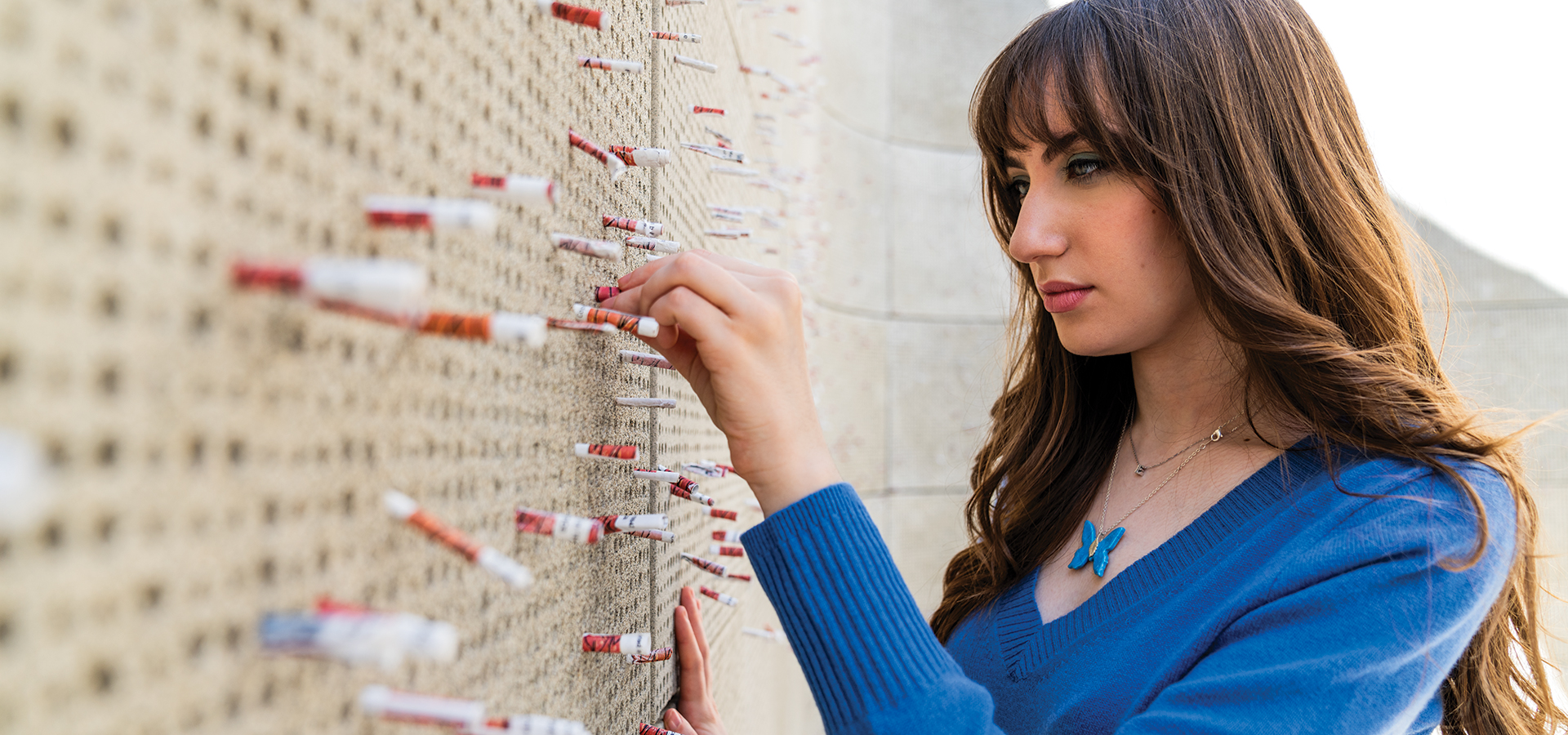
Above: Emma in front of the Children’s Memorial at Holocaust Museum LA. The memorial commemorates the youngest victims of the Holocaust.
•••
Poised and prepared, her steady gaze toward the crowd, Emma launched into her talk with staggering statistics.
“I am a member of Gen Z. And people seem absolutely baffled by us: ‘Why does Gen Z not want to work? Why does Gen Z complain so much? Why does Gen Z hate skinny jeans?’
“I ask a different question: Why does 63% percent of my generation and millennials not know that 6 million Jewish people were murdered in the Holocaust?
“Why do 11% believe that Jews caused the Holocaust? Why do 10% not believe or doubt that the Holocaust happened?
“Crimes against humanity that are focused on the past sometimes get pushed to the back burner, but I think bringing them to the forefront is important, now more than ever. Despite the refrain of ‘never again’ after the Holocaust, we are once again confronted with murderous atrocities and a growing tide of anti-Semitism around the globe. My TEDx talk was built around the hope that my generation would be the last to know people who survived genocide and the hate that fueled it. Tragically, with what is happening in the Middle East, it will not be. The need for retelling of survivors’ stories continues, as does the urgent need for genocide education, understanding, and prevention efforts.”
Since Emma’s speech was published on the official TEDx YouTube channel it has already racked up 25,000 views. “It was a wild and surreal experience. I feel like I’m still trying to wrap my head around it. The process of writing was wild. It literally just came to me. I wrote the whole thing in an afternoon.”
Emma’s activist streak seems bound to continue. She is studying environmental science, history, and ethnic studies with an interest in the intersection between climate change and genocide. She founded the Last Generation Coalition, a youth-led nonprofit (with 501c3 tax-exempt status) that spreads genocide awareness and provides educational resources. Through that effort, Emma hopes to get genocide education curriculums passed in state legislatures. Although she hasn’t yet determined her exact career path, one thing seems certain: We’ll be hearing the name Emma Blankstein again.
Join the Valley Community






